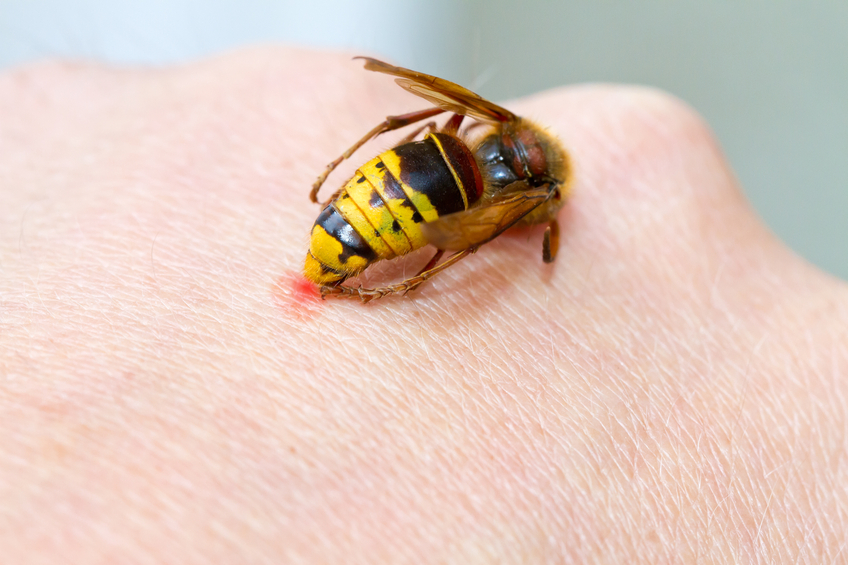With so many plants in full summer bloom, bees and other biting or stinging insects are abundant and can be a nuisance when gardening or entertaining outdoors. Allergies can develop at any age and reactions to bee stings can be more serious for older adults. But there are steps you can take to help prevent a sting and tips to help minimize the reaction if you are stung.
Honey bees, yellow jackets, hornets, wasps and biting ants are the among the insects that cause the most serious sting reactions, according to UpToDate.com, an online medical information resource written by physicians.
What to do if you are stung:
- Remove the stinger as soon as possible, venom is released within the first few seconds.
- If there is a local reaction such as sharp or burning pain, skin swelling or redness, treat with a cold compress and if itching develops try a non-prescription antihistamine.
- Over-the-counter pain relievers such as ibuprofen may help with any pain.
- If swelling gets worse, call a doctor.
- In case of an allergic reaction such as hives, swelling in unrelated part of the body, nausea, cramps, shortness of breath, hoarse voice or dizziness, go to an emergency room immediately or call 911 if you are alone. Do not try to drive yourself!
- You can have an allergic reaction from the first time you are stung and if you have had symptoms of anaphylaxis, seek the treatment of an allergist who can prescribe a epinephrine pen to carry with you and help determine if allergy shots can reduce your risk.
To avoid stings outdoors:
- Wear white or light-colored clothing.
- Keep food and drinks covered and wipe up spills quickly
- Always wear shoes outdoors
- If you are allergic, do not try to remove wasp nests yourself, call a professional.
- If you are close to a stinging insect, calmly back away without flailing your arms
- If swarmed or stung, cover mouth and nose and get inside a building or vehicle as quickly as possible.
To learn more about stings and allergic reactions visit the Ontario Ministry of Health and Long Term Care website at http://www.health.gov.on.ca/en/public/publications/pubhealth/bee_stings.aspx .






Add Your Voice
0 Comments
Join the Discussion